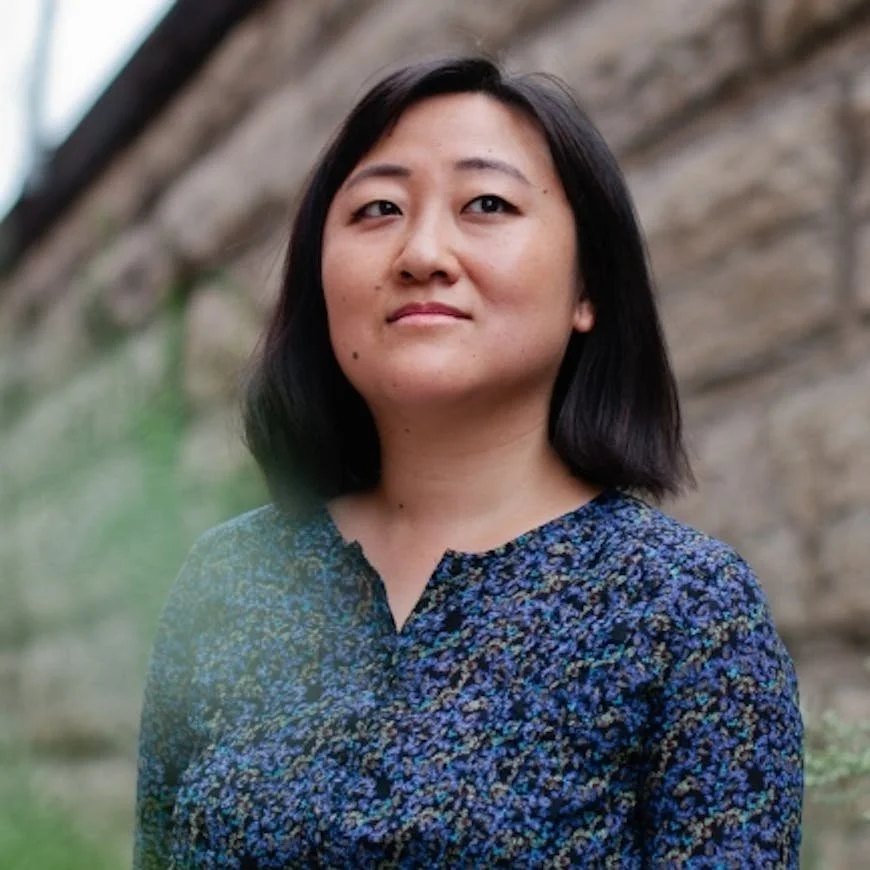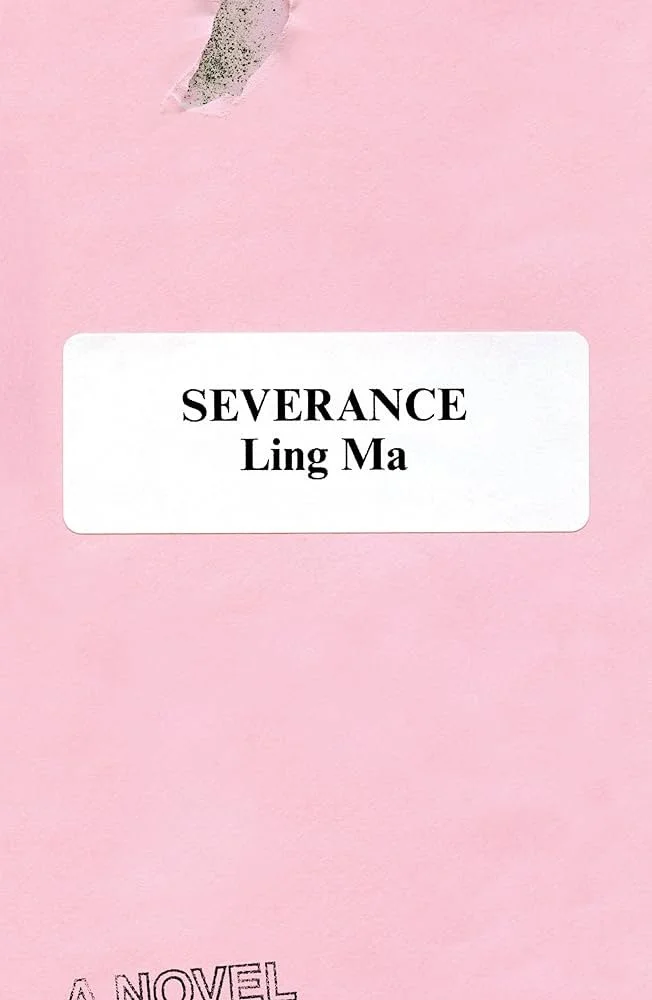Interview: Ling Ma
Renowned for her debut novel, Severance, a work that not only garnered critical acclaim but also earned the rare distinction of being deemed prophetic, Ling Ma stands at the intersection of literary brilliance and prescient insight. Her latest work is the aptly titled Bliss Montage, a short story collection published in 2022 by Farrar, Straus and Giroux. Bliss Montage beckons readers into a dreamscape woven with eight tales, each a testament to Ma's unique ability to explore the uncanny while remaining rooted in the profound realities of human connection, memory, and the innate desire to see the world through the eyes of another—be it your mother or your cruelest ex-lover. In essence, reading Bliss Montage is akin to having an intimate conversation with your most eccentric friend—the one who, at any moment, can unveil the mysteries of our existence with both whimsy and wisdom.
This winter, I wrapped up my first semester at Cornell’s MFA program and watched it snow from the windows of the Literature building. It was under these cozy, practically Hallmark conditions that I had the pleasure of speaking to Ling Ma about monsters, Real Housewives, and the writerly urge to eavesdrop.
Mai Mageed: I want to start by saying that Bliss Montage is such an incredible collection of stories. The process of writing a short story, I assume, is super different from writing a novel. Though it doesn’t take as long to write, it can still be just as demanding—if not more so—because you have to keep creating an entirely new world every time! Was there a story in Bliss Montage that was especially taxing to write, emotionally or, in that vein, imaginatively?
Ling Ma: I feel like they were all a little bit emotional to write. I think what I like about short stories, and using a speculative element, is just that I don't have to sustain it for that long. On the other hand, I feel like with writing a short story I spend more time thinking than I do writing. And with a novel, I'm just writing every freaking day, non-stop. I mean, I speak from my limited experience. But I kind of like that with a novel. You just wake up, you write, and there's still so much you have to do. And with the short story, it's a little more challenging because you’re constantly confronted with questions like: What is the story about? What are these characters trying to do? Why did you choose this in the first place?And I think those questions, which almost feel existential after a while, come up more frequently with the short story writing process.
MM: It’s interesting, writing a short story, in the sense that you don’t get to spend as much “quality time” with the characters. Is there a character you’ve found yourself very attached to, or one that you want to keep exploring? Have you considered revisiting any of them?
LM: Yeah, but it’s more structural. Like: What if I had done this other thing instead? There are a lot of things I would have liked to go back to try out. They randomly come to me like a year after the stories have been published. Or sometimes it’s in terms of the plot, so: What if I have this thing happen instead of this other thing? And I would have liked to have some more time to play it out. But they're also published!
MM: Yes! There’s always that experience of revisiting a short story from two or three years ago and just constantly revising it. Whereas maybe when the book is published, that would be very difficult to do. Do you ever reread any of them?
LM: I haven't. I mean, when I'm asked to do a reading, I have to literally read them out loud. But I don't really like to look back, I just kind of keep it moving. It feels like someone else wrote them by this point. To me, Severance is so old—I wrote it so long ago that it’s like someone else wrote it. And with some of the stories in the collection, too, it’s like this was a former self. If I do go back and look at it, something about it captures a certain time in my life, even if it's not autobiographical, even if the details aren't things I've experienced. There’s a mood or a tone that it can take me back to.
MM: On a related note, you’ve spoken about your novel Severance being inspired by the experience of watching Mad Men and The Walking Dead at the same time—this combination of complex office politics and zombie horror. What media were you consuming around the time you were writing the stories in Bliss Montage? TV shows, music, or films… video games, even! And how do you feel they informed the subject matter or the general tenor of the collection?
Photo by Anjali Pinto
LM: Well, some of the stories are really old, like “Los Angeles” and “Yeti.” But most of them I wrote from 2020 to 2021. So I remember reading Sheila Heti's Motherhood, and that was interesting because that book seems to me like it's more about writing a book than about bearing and raising a child; I think it's actually about the creative process. And I was listening to a lot of music. I was listening to the Fiona Apple album… to conjure up the mood for some of the stories, I was listening to music from the past that I used to listen to when I was a teenager, to try to get some of that mood back. So probably some old Tori Amos albums.
MM: Did it put you in a certain headspace, and influence your process or your stories in any way?
LM: I don't really try to figure it out. I don't even think I'm responsible for most of it, what I write. It's a mysterious process, you know, and if I'm surprising myself during that process then I'm doing something right.
MM: As a reader, I had this constant sense of surprise, too. For example, you mentioned “Yeti Lovemaking,” which is my favorite in the collection. It takes this creature, the Yeti, from Sherpa folklore and throws him into the modern world. He’s almost like a rugged cowboy in a way—he broods, he smokes American Spirits, and to the woman he’s seeing, he feels almost impossible to emotionally access. Sounds like a couple guys I know! And he’s hairy, too! So what is that process like, where you take modern matters such as one-night stands and recreational drugs and you add mythical or folklorish elements into the mix? Where did this unique approach come from?
LM: Well, it's interesting that you said rugged cowboy type because I was thinking about him in terms of masculinity. I was working at Playboy at the time, and it's a men's magazine, of course, so for every issue, we would do these fashion spreads on icons like Steve McQueen and Cary Grant, or whatever. Like, buy this pair of Persol sunglasses to emulate Steve McQueen! These icons of Western masculinity basically. And so I was thinking, “Well what if you were to push that extreme even further? What does hysterical masculinity look like like?” And I just started thinking about Yetis and Sasquatch.
MM: The ideal male form!
LM: I think there's something about them; they’re autonomous, they’re totally self-reliant. And so I was like, “That's actually ultimate masculinity.” And then, okay, let's throw sex in the equation here. What would that be like? And it just kind of cracked me up! But it is also this breakup story because she's addressing someone else, this ex who seems kind of like a wimp to be honest, and I think maybe a part of it is that she's bragging a little bit to him. But there’s also a lot of pain in this strange testimony.
MM: Strangely, even when I was reading it, there was something so desirable about him. The mystery and the independence he has from all of society.
LM: And, you know, these ideals don't really exist. They cannot be embodied by anyone. But what if they were? They can only be embodied, to some extent, by a mythical creature.
MM: It’s amazing how he retains so much humanity. Throughout the collection, these mythical elements don’t disrupt the story or feel unnatural, but they do give the characters this profound fish-out-of-water aspect. The professor in “Office Hours” puts it best. He says: “It is in the most surreal situations that a person feels the most present, the closest to reality.” Do you agree with his sentiment, do you think there’s a truth to it?
LM: It’s in the strangest experiences that I feel the most in my body. For instance, just to take a small example, getting into a car accident or something. Suddenly, everything that isn't important falls away. The things that you were supposed to do, the errands you were supposed to run, the job you were supposed to go to. Suddenly it wipes the slate clean, and it's almost as if you're able to see what is most important to you. And there is something about it that makes you feel very present. A car accident is just a random example. But even thinking about things like national catastrophes, acts of terrorism. And how we process that is…I don't wanna say grounding, but it puts you back in your body in a way.
I don't know if that's something I'm trying to chase by incorporating surreal elements. I'm not exactly sure but I am interested in thinking about what rips open the everyday. Is there an everyday setting that we work on? What pulls that away?
MM: It’s genuinely scary to think about. It’s scary to see what's left. And that comes up in Severance, too, this animalistic part of who you are that reveals itself when the mundanity and comfort of routine is stripped away. I’m thinking of some of the stories from Bliss Montage, namely “Oranges” which is about Adam, a human being who is a monster at his core, and “Yeti Lovemaking,” which is about a monster who is deeply human. And I just love how the romantic elements in your work have this sense of distortion and otherworldliness because honestly, that’s what love is all about. Why do you think this concept of surreal desire manifests itself in your writing?
LM: Does it? I guess there are pockets of deep romanticism in some moments. I don't know, I like writing about it. I wanna have a better answer than that! I feel like the way that modern relationships are portrayed is very cold and rational. There's this trope of cold millennial love stories and I'm just trying to explore an alternative. Fantasy is usually an entry point. I mean, in “Oranges” she sees her abusive ex and gets to follow him around and see what he’s up to, and maybe have some kind of revenge. That fantasy is a very common one.
Or in the story “Los Angeles,” there’s the idea of never breaking up with any of your exes, and getting to subsidize them through your rich husband. There is an element of fantasy there. When I was writing “Los Angeles,” I started with this idea of wealth. I was watching a bunch of Real Housewives at the time, and I wanted to inhabit this imaginary land because I read somewhere that sometimes they use sets for the housewives. They have a different space that they use just for filming, and they say it’s their home. I thought about “Los Angeles” almost as being filmed on a set.
I find that anytime you attempt to inhabit a fantasy, it turns nightmarish. Fantasies are meant to be looked at, but they're not meant to be inhabited, or else they turn weird and sour and unusual. They disintegrate and the stories here kind of track the way that they disintegrate.
MM: The romance in these stories is never straightforward. A girl meets a guy, they fall in love, whatever, roll the credits. It never plays out that way in this collection. Even in “Oranges,” one of the most realistic stories, there’s that power dynamic reversal, this revenge. In a very different way, this idea of surveilling other people comes up again in “G.” In that story, there’s a drug that allows users to be temporarily invisible. The main characters literally follow people into their homes, which is honestly what most people would do with that sort of power. The whole concept of invisibility, and the way it’s used here, is so fascinating to me. The freedom from being seen. The ability to be a fly on the wall, and witness someone’s guard being completely down.
LM: That’s what writing is, too, you know.
MM: Exactly! I feel like so much of being a writer has to do with being a good eavesdropper. Does it play a role in your creative process?
LM: I do think I'm a bit of a voyeur, and I think I tried to parlay that into journalism and being a reporter. I did some journalism in the past, some freelance stuff where I would be invited into people’s homes and chat with them, see how they lived. But I didn't work out as a journalist. I don't think I have that killer instinct. I was always in my head a little too much, fantasizing. But I definitely feel like some of these voyeuristic tendencies play out a little bit in my fiction.
With a lot of journalism, like writing a human interest feature, you already know what the story is. It’s something that's already happened, but you're trying to put some emotion into it. And with fiction, it's the reverse; I start with an emotion and then I try to find out what story can kind of accommodate that emotion.
MM: Do you have an example of that sort of journey? Something that started as a feeling and turned into a whole plot?
LM: Yeah, sometimes it's very abstract. It might just be like, you know, walking at night, and then you see a woman sitting at her window. And maybe there's something lonely about it. Then you think of all of the texture of the world around it—like the snow outside, or being in Chicago, and it all contributes to this probably misplaced empathy for this stranger. I always start with moods and feelings that might strike me, and they form a story. It could be real, it could be fantastic.



